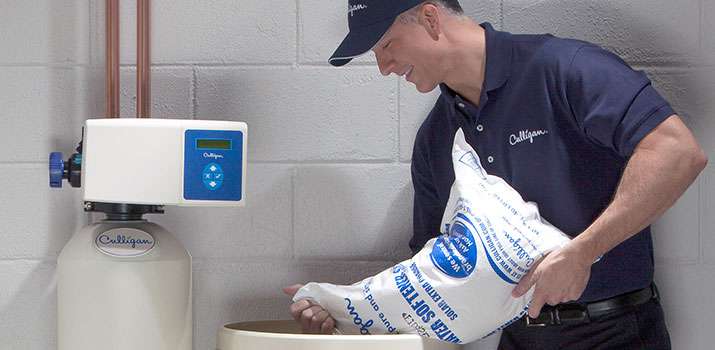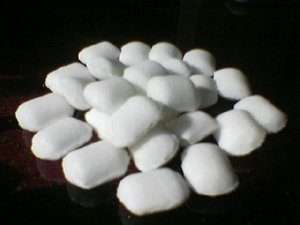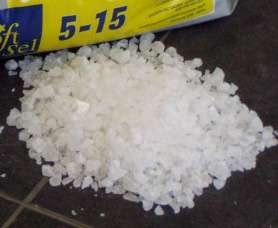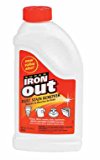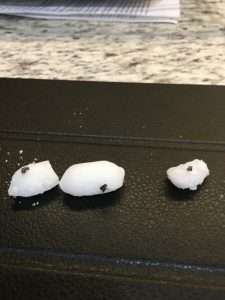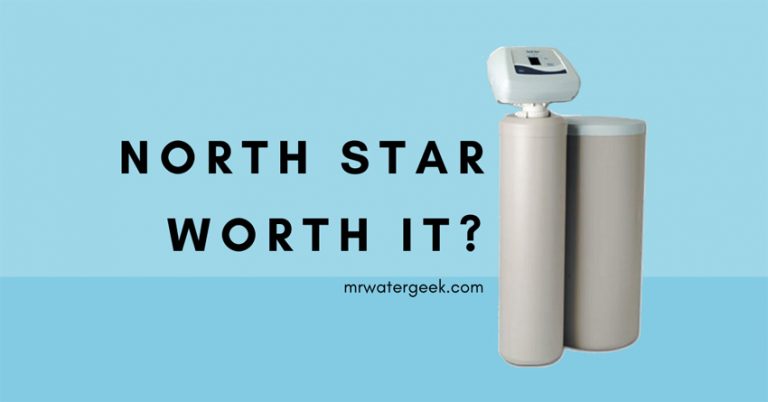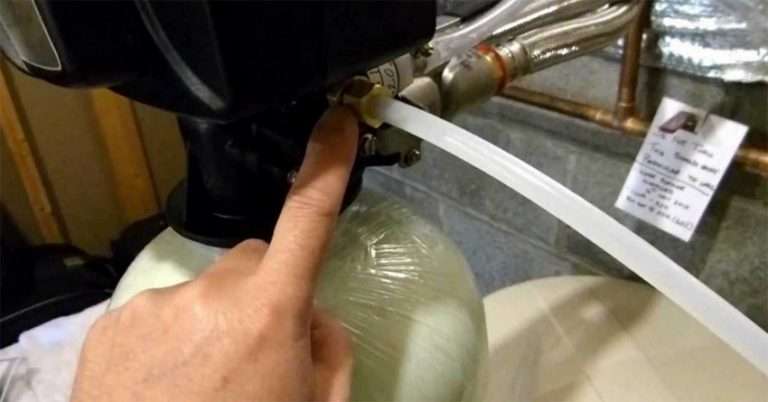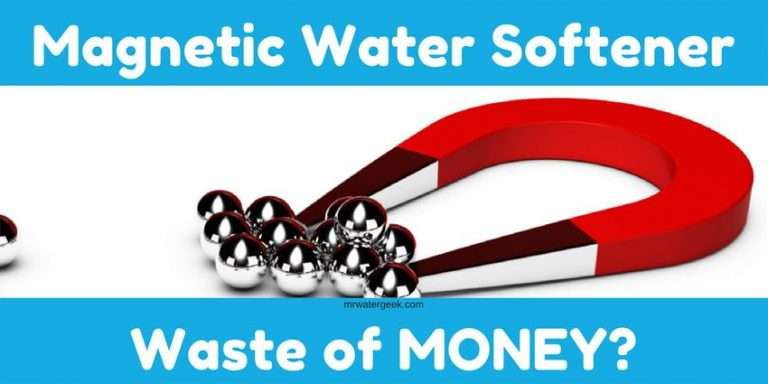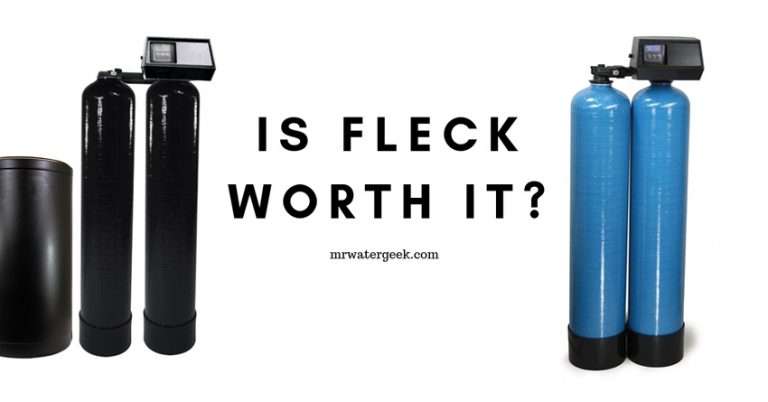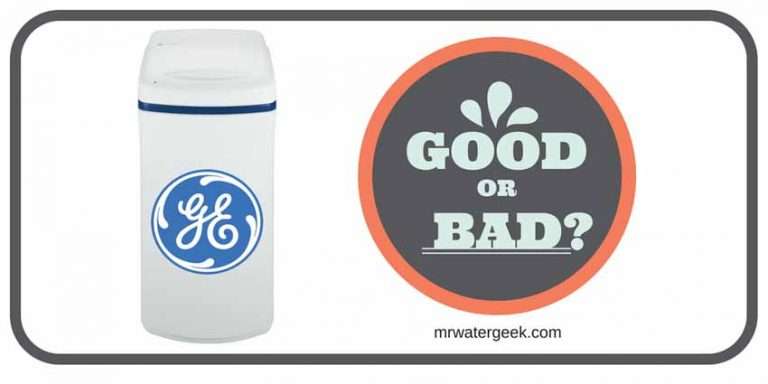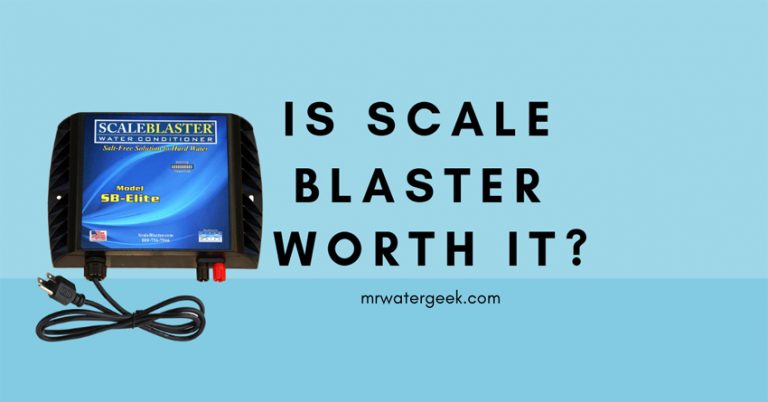Water Softener Salt Reviews: How to AVOID and Fix PROBLEMS
This article will focus on water softener salt reviews. I will rate the best salt that is specifically designed for water softener machines on the market today.
The market is full of what seems like millions of different types of softener salt.
And because there are so many different types of water softening salts on the market it is difficult to know which one is right for you.
First I will start by explaining what a water softener salt actually is. Why you need it and the different types of salt you can by.
There are a lot of things that can go wrong with water softener salts. And by association, wrong with the machine itself. I’ll cover all of these and simple ways to service your softener machine (for free) so that you can prevent problems from happening in the first place.
What is Water Softener Salt?
It is the salt used by the brine tank of the water softener that regenerates resin beads in your water softener. Although it does not directly soften the water, it is an essential part of the water softening process. Softening salt helps the resin beads to do their work of removing hard water ions, iron, magnesium and calcium.
Different Water Softener Salt Types
- Solar Salt.
- Evaporated Salt Pellets.
- Rock Salt.
- Potassium Chloride Pellets.
- Hydrogen Peroxide.
If you are new to softening water, it might both surprise and frustrate you to know there are lots of different types of water softener salts. Life would be much easier if there were just one, but unfortunately that is not the case. Although we are used to using salt for cooking and food, softening salt is slightly different. 
But there is one key difference.
Food only needs a small amount of salt but water softeners need much larger quantities. Hence, why they are sold by the pound or in large blocks.
There are 5 different types of water softener salt types. The one that you need will depend on your needs, the type of softening machine you have and personal preferences. You can typically expect to choose from evaporated salt pellets, solar salt, rock salt, hydrogen peroxide and potassium.
Let us now look at each type of water softener salt, what their issues are and what situation each best works in.
What is Solar Salt?
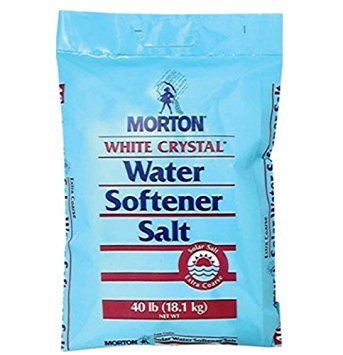 Solar salt or sea salt is a by-product of evaporated seawater. It appears after seawater is collected into a certain area and left to dry. What’s left over after this process is “Solar Salt”, because it was dried by the sun.
Solar salt or sea salt is a by-product of evaporated seawater. It appears after seawater is collected into a certain area and left to dry. What’s left over after this process is “Solar Salt”, because it was dried by the sun.
Salt crystals are harvested in baskets once they start appearing.
Solar salt is highly soluble. This means that it is able to dissolve much faster then other types of water softener salt.
The solar salt that you need for softening water is usually sold in pellets.
What is solar salt used for? Solar salts dissolve faster than other forms of salt. You can use it if your system suffers from salt build up so you don’t have to keep breaking it up manually.
![]()
What Are Evaporated Salt Pellets?
Evaporated salt is the purest form of
sodium based salts that can be used for softening water.
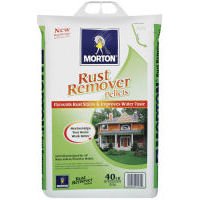 This type of salt comes direct from the rawest state and is then converted back to sodium chloride when all the moisture has been removed. The sodium chloride is converted back using heat which removes all of the moisture. Hence the name “evaporated salt”.
This type of salt comes direct from the rawest state and is then converted back to sodium chloride when all the moisture has been removed. The sodium chloride is converted back using heat which removes all of the moisture. Hence the name “evaporated salt”.
What is left from this process is 100% pure salt.
Because it is the purest form of salt, the evaporated salt pellet is also highly effective at treating hard water and making it soft.
![]()
What is Rock Salt?
Rock salt is the type of water softener salt that is usually mined underground. The minerals form from an accumulation of salt deposits. This is the result of soil erosion due to rain over hundreds of years (maybe even thousands) as well as other underlying factors.
Among the 5 types of salt mentioned in this section, rock salt is the rawest kind. This also means that the salt crystals from rock salt also contain other traces. Some traces might not fully dissolve in water.
Now the next question is do you really want to use a type of salt for softening water that contains other minerals?
Especially since some of those other minerals might not be fully dissolved or removed in the softening process?
While it’s true that rock salt contains a number of trace insoluble elements, this should not be an issue. I am yet to find any evidence of negative health impacts from the trace elements that may appear in each crystal. So far the prognosis is that you can safely and continuously use rock salt in your water softener.
 Rock Salt Problems
Rock Salt Problems
There is a problem with rock salt which comes in the form of how it affects your machine. The extra minerals in the salt crystals can sometimes be left in the brine tank, which could lead to build up.
Although regular rock salt is less expensive, the trace minerals it contains can cost you more in the long run. Rock salt can very easily cause lots of sediment build up in your brine tank. Any sediment build up can clog the machine up and stop it from working properly.
![]()
Potassium Chloride Pellets?
Potassium is not actually salt. In fact, it is a possible healthy substitute to softening salt. This is something that is more and more popular now that people are aware of possible dangers of salt. Apparently some softening companies add “too much” to their water softening devices after the softening treatment. All this salt adds up and can be an issue for some people. However, using potassium as an alternative can be away to avoid this problem.
Potassium chloride water softener side effects? Potassium chloride can have a significant effect on hypertensive patient. There are even research studies that show this is the case. What will surprise you is that most of the research respondents where turned out to be water softener users. So although this is a “healthier choice”, make sure it’s right for you. Avoid potassium if you suffer from hypertension or have a history of this condition in your family.
What is Hydrogen or Hydrogen Peroxide Water Softener?
Hydrogen or hydrogen peroxide is not strictly a type of salt. It is a chemical compound that you can use to treat hard water.
Hydrogen peroxide is also an effective chemical cleaning agent. It eliminates germs in bacteria (i.e. disinfectant). This is why some homeowners like to add a small amount in their drinking water to remove all harmful microorganisms present in water.
Can I use hydrogen peroxide for softening water? Yes. When you add hydrogen peroxide to water it removes calcium and magnesium ions. This is essentially what the softening process does. However, the peroxide chemical also removes bacteria and disinfects the water while softening the water.
 Hydrogen Peroxide Water Softener Problems?
Hydrogen Peroxide Water Softener Problems?
When you use hydrogen peroxide, it removes everything from water. Absolutely everything. This means that you can be left with a bland and quite clinically clean tasting water.
 Hydrogen Peroxide Water Softener Benefits?
Hydrogen Peroxide Water Softener Benefits?
Using hydrogen peroxide to soften water is good for you if you’re eco-friendly or health-conscious. Also, it will cut down on softener maintenance time and costs. This is because hydrogen peroxide not only cleans the water, it cleans the tank as well.
![]()
Culligan Water Softener Salt
You do not need to rent or own an actual Culligan softening system to use their salt. Anyone and everyone can buy Culligan through their softener salt delivery service. They also deliver all brands and types of water softener salt not just their own. Culligan offer 2 types of softening salt:
- Solar Extra Coarse Water Softener Salt.
- Solar Cubes Water Softener Salt.
Water Softener Salt Pellets OR Crystals?
If you are trying to decide between water softener salt pellets, let’s quickly look at both.
Common Water Softener Problems
Sodium based salts are the standard way to make water softener machines regenerate soft water. They have a proven track records of efficiency and reliability. But that is not to say that things don’t sometimes go wrong.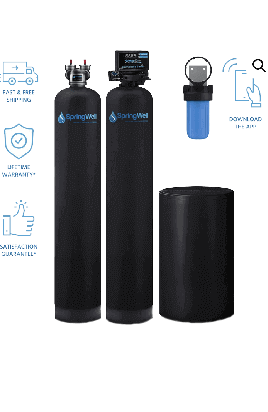 If something goes wrong and you don’t spot it, you may inadvertently end up drinking lots of hard water. And this defeats the whole point of buying a softener machine in the first place.
If something goes wrong and you don’t spot it, you may inadvertently end up drinking lots of hard water. And this defeats the whole point of buying a softener machine in the first place.
So let’s see the most common water softener problems, how to spot them and most importantly how to prevent them from happening in the first place.
Salt Bridge Water Softener
Salt bridges forming inside the tank can cause the machine to stop working properly. The sad part is that once your water softener machine has experienced salt bridging, it’s likely to happen again. Salt bridging will tend to re-occur again at an even faster rate.
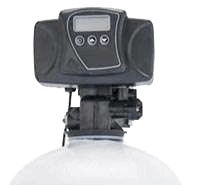 The quickest way to deal with salt bridging is to remove small formations when they appear. And keep the machine clean and well-maintained to prevent this from happening in the first place.
The quickest way to deal with salt bridging is to remove small formations when they appear. And keep the machine clean and well-maintained to prevent this from happening in the first place.
Another way to fix this salt bridging issue is to:
- Secure something with a long pointy handle like a a broom stick and use the long handle to immediately break up the bridge.
- Mix the broken up softener salt with the water until it totally dissolves.
![]()
Soft Water Smells Like Rotten Eggs
When water smells like ‘rotten eggs’ it is a possible sign that it contains too much sulphur. If sulphur is not the culprit then it means there is some other kind of contaminant in the water.
It can possibly be that your water supply contains lots of iron deposits. Iron contamination of water gives soft water a metallic type of stench and / or flavor.
Another possibility is that your brine tank contains bacteria and germs. In severe cases, this can cause the water to have a seaweed-like stench. If you are sure this is the cause of the smell then the solution is simple: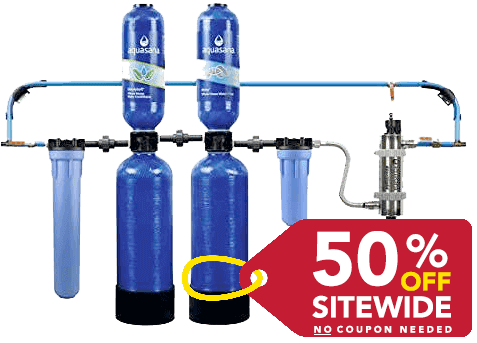
- Flush the tank out with all the salt that is already inside.
- Thoroughly clean the tank.
- Use a little hydrogen peroxide solution in the water after you have cleaned the tank to prevent this happening again.
How else can I get rid of rotten egg smelling water?
If you have this bad smell in your water, you can do one of two things.
- The first thing you can do is empty the tank and thoroughly clean it from top to bottom. Load it up with fresh new water, salt etc. and re-start the machine.
- The second thing you can do is call the supplier and ask them to send out a service person. This might cost you some money depending on the type of warranty you received when you bought the machine.
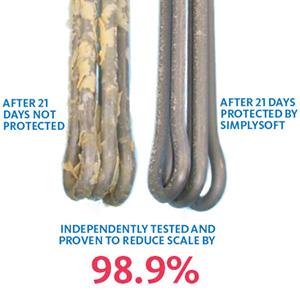 However, your home insurance might be another place to seek help if all else fails and the problem gets worse.
However, your home insurance might be another place to seek help if all else fails and the problem gets worse.
Water Softener is Not Using Salt
Over time the salt in your softening machine can create a solid mass at the bottom of the salt tank. This solid block of salt can stop water flowing freely through the salt tank. When this happens the device stops producing soft water and it also stops using salt to make brine.
This means that even though the machine is still producing water, this water will be hard. Your water softener will not produce soft water until you address the issue created by the salt build up.
![]()
Maintain Water Softener
You can avoid many of the water softener problems by maintaining your system. Doing a regular health check and keeping up good practices solves lots of problems. 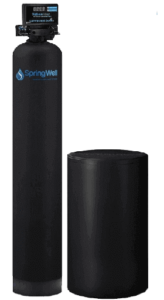 Better still, good maintenance solves the problem before they ever become a problem.
Better still, good maintenance solves the problem before they ever become a problem.
The first place to start is the softener manual itself.
This will always include system’s maintenance requirements. What you need to do, how often and what resources you will need to perform the task.
Taking note of all of this and performing the actions as directed will give you a better performing system. It will ensure you get the highest quality soft water and longest running machine without too many breakdowns.
![]()
Water Softener Maintenance Cost?
There are many companies offering an annual inspection of your water softener machine. Getting one of these services will make sure your water softener always works at peak efficiency. The annual service will typically include a full service. The service person will check if the soft water is properly functioning, tell you how to best operate the system and point out any possible future problems.
The cost of an annual water softener service and check up starts at £59 in the UK and $100 in the US. However, the cost will depend on the complexity of your machine as well as a number of other factors.
![]()
How To Service A Water Softener
- Use pure iron and salt remover.
- Do not add the salt until all of the salt already in the tank is finished.
- Once finished, refill the tank until no more than two-thirds full.
- Once a year use ‘Iron-Out’ to clean out the resin bed as well as parts of the control valve.
- Make sure you clean the brine tank at least once a year because even the purest salt contains contaminants.
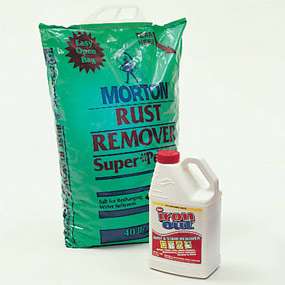 Use pure salt and Iron-Out – they will keep your water softener clean.
Use pure salt and Iron-Out – they will keep your water softener clean.
![]()
Best Salt For Water Softener
Here is a selection of the best water softener salts on the market. You can typically expect to get much better prices online than in a physical store. This is because online stores have smaller overheads so they can pass on savings to you the customer. The list below comes from customer reviews and how popular a product is among consumers.
Water Softener Salt Reviews – The Best Water Softener Salt
![]()
Known Problems With Morton Softener Salt….
Here is a message sent by one of my readers…
 “Are you aware of issues with small pieces of rubber embedded in Morton salt pellets? Our Kenitico system recently stopped functioning. When the Kenitico repair person came out he said we had “bad salt”! He explained that they are finding cases of small pieces of rubber embedded in Morton’s salt pellets. These pieces jam up the works of the softener. He showed them to my wife. I can send pictures if you’re interested. He said Morton is aware if this issue.
“Are you aware of issues with small pieces of rubber embedded in Morton salt pellets? Our Kenitico system recently stopped functioning. When the Kenitico repair person came out he said we had “bad salt”! He explained that they are finding cases of small pieces of rubber embedded in Morton’s salt pellets. These pieces jam up the works of the softener. He showed them to my wife. I can send pictures if you’re interested. He said Morton is aware if this issue.
He cleaned out our unit and told us to dig out all the salt, skim the remaining rubber pieces off the surface of the water at the bottom of the salt tank, and use someone else’s slat. We were charged $85 for the call/repair.
I’ve contacted Morton, sending them pictures of salt with the rubber pieces stuck in them, but because I can’t supply them with “batch” information from the bags (which were thrown out, not realizing I would need them to file a claim) they refuse to reimburse me for the repair costs. They are going to give me $12.00 as reimbursement for the two bags of salt I threw out – how does that make sense?
Here are two pictures of the salt pellets – the Kinetico repair person found one; we found the others as we cleaned the remaining salt out of the tank. The rubber pieces are actually embedded in the pellets. As he told us we would, we found a number of rubber pieces floating on the water at the bottom. The repair person told us to stop using Morton products, period.
I’ve used only Morton salt in our softeners for almost 40 years. The only thing that was different lately was that I had recently bought two bags of Morton’s Rust Remover salt. Maybe this is only an issue with that product – I don’t know.”
 |  |
| Treats hard water UP TO 25 ppm (low to medium low hard water). | Treats hard water OVER 25 ppm (medium to extremely hard water). |
| Does NOT require electricity. | Requires electricity if using the electronic head monitor. |
| Control Your System With An App:? NO | Control Your System With An App:? YES |
| - Powerful salt-FREE water softener. - 1,000,000 one million gallon capacity. - Aquasana Rhino exceeds NSF standards. - Treats hard water WITHOUT salt. - Removes chlorine, bacteria, iron, sulfide, manganese, mercury, lead etc. - Includes pre-filter, copper-zinc and carbon filtration stages with standard fittings. - 90-Day Pure Satisfaction Guarantee. - Limited 10 year warranty.  | - Powerful salt-BASED water softener. - 1,000,000 one million gallon capacity. - Also includes a multi-stage filter. - Easy installation (inside or outside) - Sufficient for 1-3 bathrooms (options for 4-6 and 7+ bathrooms also available). - 6 month money back guarantee. - Limited lifetime warranty. |
| $$$ Ships to US and CA. | $$$ Ships to US, CA and Puerto Rico. |
| Sale prices automatically applied by clicking this link. | |
| If there is *no* sale try coupon code: AQGEEK50 | Coupon Code: GEEK5 |
 |  |

